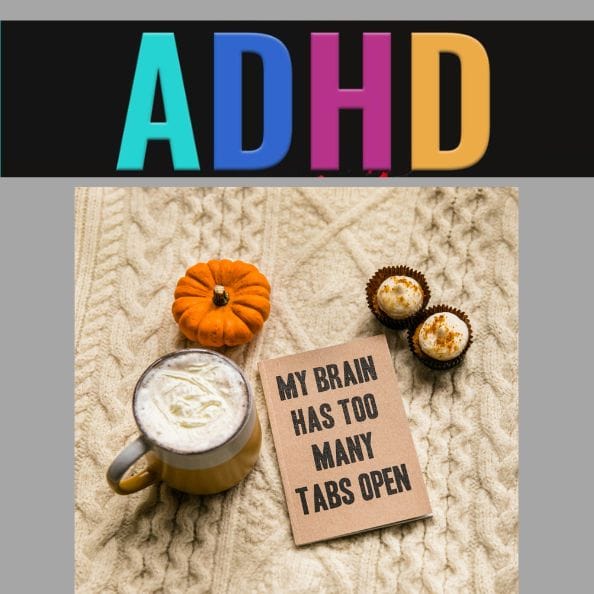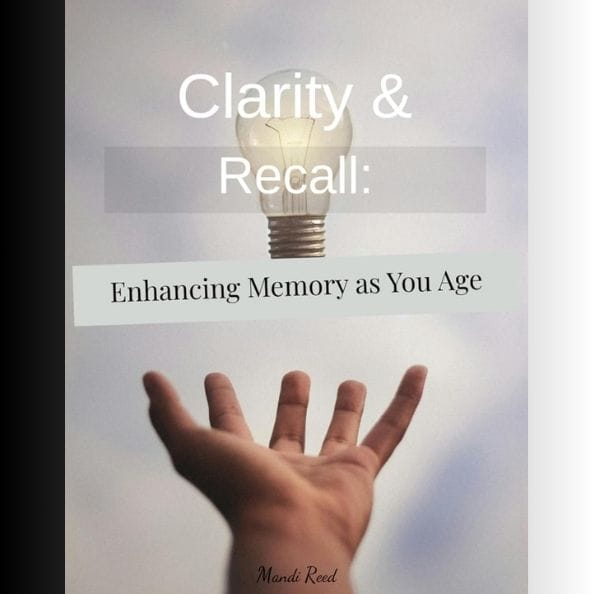Key Takeaways:
- ADHD manifests differently in children and adults, impacting their daily lives in unique ways.
- Understanding these differences can help in providing better support and treatment.
- Both children and adults with ADHD can lead successful lives with the right strategies and interventions.
Understanding ADHD: An Overview
Attention Deficit Hyperactivity Disorder (ADHD) is a neurodevelopmental condition that affects both children and adults. It is characterized by symptoms such as inattention, hyperactivity, and impulsivity.
While ADHD is often associated with children, it is important to recognize that adults can also be diagnosed with this condition. The way ADHD presents itself can vary significantly between children and adults, making it crucial to understand these differences for effective management.
- ADHD in children often becomes apparent when they start school, as they may struggle with following instructions, staying focused, and sitting still.
- In contrast, adults with ADHD might face challenges in their professional and personal lives, such as difficulty managing time, staying organized, and maintaining relationships.
*Understanding these symptoms and differences early on can help in providing better support and treatment.
Here's a resource that gives an impressive perspective on "thriving with distraction — from Childhood Through Adulthood" ...
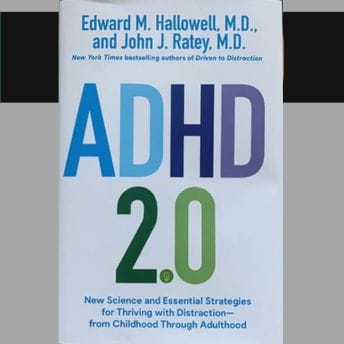
Symptoms of ADHD in Children
Children with ADHD typically exhibit symptoms that can be broadly categorized into inattention, hyperactivity, and impulsivity.
- Inattention symptoms include difficulty sustaining attention, making careless mistakes, and being easily distracted.
- Hyperactivity symptoms involve excessive fidgeting, running or climbing in inappropriate situations, and an inability to play quietly.
- Impulsivity symptoms include interrupting others, difficulty waiting for their turn, and acting without thinking.
These symptoms can significantly impact a child's academic performance and social interactions.
For example, a child with ADHD may struggle to complete homework assignments, follow classroom rules, or make and keep friends.
*Early diagnosis and intervention are essential to help children with ADHD develop coping strategies and succeed in school and social settings.
Symptoms of ADHD in Adults
Adults with ADHD may exhibit different symptoms compared to children. While hyperactivity tends to decrease with age, inattention and impulsivity often persist.
Adults with ADHD may struggle with time management, organization, and prioritizing tasks. They may frequently lose items, miss deadlines, and have difficulty maintaining focus during meetings or conversations.
Impulsivity in adults can manifest as making hasty decisions, interrupting others, and engaging in risky behaviors. These symptoms can affect various aspects of an adult's life, including their career, relationships, and overall well-being.
*Understanding how ADHD presents itself in adults is crucial for providing appropriate support and interventions to help them manage their symptoms effectively.
Diagnosis of ADHD in Children
Diagnosing ADHD in children involves a comprehensive evaluation by a healthcare professional.
This evaluation typically includes gathering information from parents, teachers, and the child, as well as observing the child's behavior in different settings. Standardized rating scales and questionnaires may also be used to assess the severity of symptoms.
It is important to rule out other conditions that may mimic ADHD symptoms, such as learning disabilities, anxiety, or depression.
*Early diagnosis and intervention can help children with ADHD receive the support they need to succeed academically and socially.
**Treatment plans may include behavioral therapy, educational support, and, in some cases, medication.
Diagnosis of ADHD in Adults
Diagnosing ADHD in adults can be more challenging than in children, as symptoms may be less obvious and can overlap with other conditions such as anxiety, depression, or substance abuse.
A thorough evaluation by a healthcare professional is essential, which may include a detailed medical history, self-report questionnaires, and input from family members or close friends.
Adults who suspect they have ADHD should seek evaluation from a specialist experienced in diagnosing and treating ADHD in adults.
Accurate diagnosis is crucial for developing an effective treatment plan, which may include behavioral therapy, coaching, and medication.
Understanding the unique challenges faced by adults with ADHD can help them manage their symptoms and improve their quality of life.
Treatment Options for Children with ADHD
Treatment for children with ADHD often involves a combination of behavioral therapy, educational support, and medication.
Check out this resource to help explain ADHD to a child ...
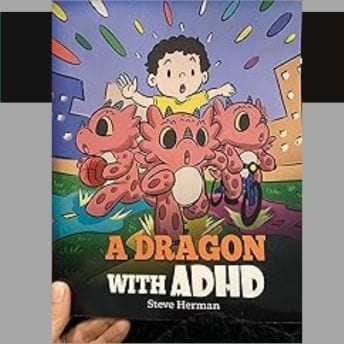
Behavioral therapy can help children develop coping strategies, improve social skills, and manage their symptoms. Parents and teachers play a crucial role in implementing behavioral interventions and providing consistent support.
Medication, such as stimulants or non-stimulants, may be prescribed to help manage symptoms of inattention, hyperactivity, and impulsivity.
*It is important to work closely with a healthcare professional to monitor the child's response to medication and make any necessary adjustments. A comprehensive treatment plan tailored to the child's needs can help them succeed academically and socially.
Treatment Options for Adults with ADHD
Treatment for adults with ADHD often involves a combination of medication, behavioral therapy, and coaching.
- Medication, such as stimulants or non-stimulants, can help manage symptoms of inattention and impulsivity. It is important for adults with ADHD to work closely with a healthcare professional to find the right medication and dosage.
- Behavioral therapy and coaching can help adults with ADHD develop strategies for managing time, staying organized, and improving relationships. Support groups and online resources can also provide valuable information and support.
*A comprehensive treatment plan that addresses the unique challenges faced by adults with ADHD can help them lead successful and fulfilling lives.
Impact of ADHD on Daily Life in Children
ADHD can significantly impact a child's daily life, affecting their academic performance, social interactions, and overall well-being ...
Children with ADHD may struggle to complete homework assignments, follow classroom rules, and make and keep friends. *These challenges can lead to frustration, low self-esteem, and behavioral issues.
Providing consistent support and implementing effective strategies can help children with ADHD succeed in school and social settings.
This may include creating a structured routine, breaking tasks into smaller steps, and using positive reinforcement.
*Early intervention and support are crucial for helping children with ADHD develop the skills they need to thrive.
Impact of ADHD on Daily Life in Adults
ADHD can also have a significant impact on an adult's daily life, affecting their career, relationships, and overall well-being. Adults with ADHD may struggle with time management, organization, and prioritizing tasks. These challenges can lead to missed deadlines, job performance issues, and strained relationships.
Here's a very valuable resource towards understanding and dealing with ADHD ...
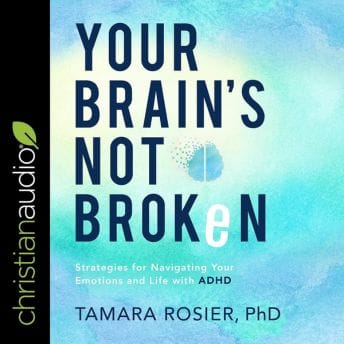
Developing effective strategies for managing ADHD symptoms is crucial for improving an adult's quality of life.
This may include using tools such as planners and reminders, breaking tasks into smaller steps, and seeking support from a therapist or coach.
*Understanding the unique challenges faced by adults with ADHD can help them lead successful and fulfilling lives.
ADHD and Co-Existing Conditions in Children
Children with ADHD often have co-existing conditions, such as learning disabilities, anxiety, or depression. These conditions can complicate the diagnosis and treatment of ADHD, making it important to address all aspects of a child's mental health.
*A comprehensive evaluation by a healthcare professional is essential to identify and address any co-existing conditions.
Treatment plans for children with ADHD and co-existing conditions may include behavioral therapy, educational support, and medication.
It is important to work closely with a healthcare professional to develop a comprehensive treatment plan that addresses all of the child's needs.
*Early intervention and support can help children with ADHD and co-existing conditions succeed academically and socially.
ADHD and Co-Existing Conditions in Adults
Adults with ADHD often have co-existing conditions, such as anxiety, depression, or substance abuse. These conditions can complicate the diagnosis and treatment of ADHD, making it important to address all aspects of an adult's mental health.
*A thorough evaluation by a healthcare professional is essential to identify and address any co-existing conditions.
Treatment plans for adults with ADHD and co-existing conditions may include medication, behavioral therapy, and support groups. It is important for adults with ADHD to work closely with a healthcare professional to develop a comprehensive treatment plan that addresses all of their needs.
*Understanding the unique challenges faced by adults with ADHD and co-existing conditions can help them lead successful and fulfilling lives.
FAQ
Q: Can ADHD be outgrown?
A: While some children may see a reduction in symptoms as they grow older, ADHD is a lifelong condition for many individuals. Symptoms may change over time, but they often persist into adulthood.
Early diagnosis and intervention can help individuals develop coping strategies to manage their symptoms effectively.
Q: Are there any natural remedies for ADHD?
A: Some individuals find that lifestyle changes, such as a healthy diet, regular exercise, and sufficient sleep, can help manage ADHD symptoms.
However, it is important to consult with a healthcare professional before making any changes to treatment plans.
Behavioral therapy and medication are often the most effective treatments for ADHD.
Q: How can parents support a child with ADHD?
A: Parents can support a child with ADHD by
- creating a structured routine,
- breaking tasks into smaller steps, and
- using positive reinforcement.
It is also important to work closely with teachers and healthcare professionals to develop a comprehensive treatment plan. Providing consistent support and understanding can help children with ADHD succeed academically and socially.
Summary
ADHD affects both children and adults, but the way it manifests can differ significantly between the two groups. Understanding these differences is crucial for providing appropriate support and interventions.
- Children with ADHD often struggle with academic performance and social interactions, while
- adults may face challenges in their professional and personal lives.
Early diagnosis and intervention are essential for helping individuals with ADHD develop coping strategies and succeed in their daily lives.
*With the right support and treatment, both children and adults with ADHD can lead successful and fulfilling lives.
Disclaimer. When you purchase through links on our site, we may earn an affiliate commission (that's how we stay in business). FirstFewFinds may use affiliate links to products and services on retailer sites for which we can receive compensation if you click on those links or make purchases through them. We hope you find the list of our first few finds useful and helpful. Each product on our list has been carefully chosen by our writers and all opinions are our own. Check your choices and enjoy finding exactly what you need!


